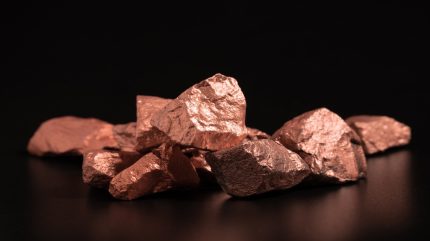
The Indian Government has urged a court to dismiss a legal challenge brought by trade bodies against its quality control measures on copper cathode imports.
The government’s response, detailed in a legal document, addresses concerns about potential supply shortages and the creation of a monopoly in favour of domestic suppliers, according to a Reuters report.

Discover B2B Marketing That Performs
Combine business intelligence and editorial excellence to reach engaged professionals across 36 leading media platforms.
In a substantial reply exceeding 160 pages to the petitions filed by the Bombay Metal Exchange (BME) and the Bombay Non-Ferrous Metals Association, the government described the apprehensions regarding supply constraints as “misconceived and unfounded”.
The document further clarifies that the quality control order (QCO) is a regulatory measure meant to protect consumer interests and is impartially applied to both domestic and international entities, the report said.
“The implementation of the QCO has not led to any monopolistic practices or price distortion,” stated the Ministry of Mines, advocating for the rejection of the trade associations’ legal challenge.
“Foreign suppliers are not being barred… The regulation aims to enhance product reliability and safety, not restrict competition,” it elaborated.

US Tariffs are shifting - will you react or anticipate?
Don’t let policy changes catch you off guard. Stay proactive with real-time data and expert analysis.
By GlobalDataCopper is among the 30 critical minerals identified by India in 2023, with domestic demand forecasted to double by 2030.
The local market is primarily served by Hindalco Industries, Vedanta, Adani and the government-run Hindustan Copper.
Since the shutdown of Vedanta’s Sterlite Copper smelter in 2018, India’s copper imports have significantly increased, with Japan being the largest supplier, followed by Tanzania and Mozambique.
Out of the ten foreign suppliers that have complied with the new certification requirements, seven are based in Japan, two in Malaysia and one in Austria, according to the Indian Government’s statement.
Last month, Bombay Metal Exchange President Sandeep Jain expressed the necessity for judicial intervention, as the government had not postponed the enforcement of the QCOs, leading to reported supply shortages.
In a related development, India has purportedly asked state-owned IREL to halt rare earth exports to Japan, potentially impacting a 13-year-old supply deal, as per sources cited by Reuters.
This move is part of a strategy to satisfy domestic needs and diminish dependence on China for these vital materials, especially given China’s reduced exports of rare earths, which are crucial for high-tech industries including electric vehicle manufacturing.



